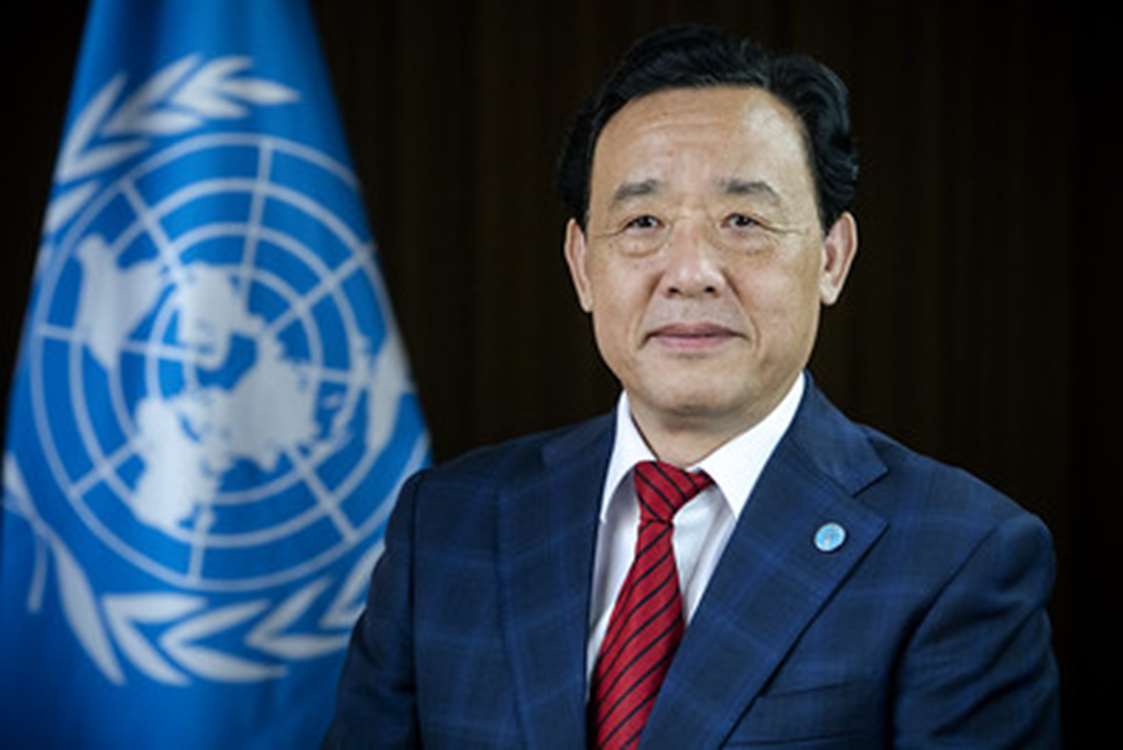FAO ready to follow up on the UN Food System Summit and transform Agri-Food Systems Together

FAO ready to follow up on the UN Food System Summit and
transform Agri-Food Systems Together
Qu Dongyu, Director-General, Food and Agriculture
Organization of the United Nations
The Food and Agriculture Organization of the United Nations
(FAO) has entered a new era with a new structure and new dynamics. The 2030
Agenda and its Sustainable Development Goals (SDGs) are approaching; we have to
change our agri-food systems urgently and holistically. This transformation
requires a systemic approach and our collective action - Hand in Hand by
producers, distributors and consumers, together with governments, private
sector, academia and civil society.
That is what the upcoming United Nations Food Systems Summit
is about, and what FAO wants to achieve, together with all our partners,
through the new FAO Strategic Framework 2022-2031. The action of each and every
one of us has an impact on the future of our planet through our agri-food
systems.
The Summit is timely. After decades of decline, the number
of hungry people has been growing for the past five years, now amounting to as
many as 811 million people. At the same time, obesity and other
non-communicable diseases are ever-growing global problems associated with
insufficiently diversified healthy diets and consumption patterns. Many of the
current agri-food practices are also exacting a heavy toll on our planet. Our
agri-food systems are not functioning properly. What do we need to do to
transform them? How does every individual impact on the process?
As the leading international organization in this field, FAO
has been advocating for and supporting agri-food systems transformation. The “agri-food
system” covers the journey of food from tillage to table – from when it is
planted, grown, harvested, processed, packaged, transported, distributed,
traded, bought, prepared, eaten and disposed of. It encompasses non-food
products such as forestry, animal rearing, use of feedstock, biomass to produce
biofuels and fibers, and it constitutes all of the activities, investments and
choices made, and it impacts on the livelihoods of all the people that play a
part in getting us these agri-food products.
With expertise ranging from policy and feasibility, science
innovation, land and water, livestock and fisheries, to biodiversity and
climate, food safety and normative work, geospatial data and digital
technology, FAO has been at the forefront supporting the preparation for this
important global Summit, and more importantly, in line with its mandate FAO
will be taking the lead to implement follow-up actions after the Summit.
In July, the United Nations Food Systems Pre-Summit was held
extraordinarily successfully at FAO headquarters in Rome. Together with FAO’s
Chief Economist and Chief Scientist, I have been sitting on the Summit advisory
bodies, scientific groups and action tracks. We have been working closely with
expert colleagues both inside and outside the UN system. With presence in over
130 countries, our teams on the ground have been supporting “national
dialogues” that contribute to the Summit outcomes and national priorities
ensuring they are targeted and solution-oriented.
Transforming our global agri-food systems rests ultimately
with actions at the country and local levels. Culture is an important aspect.
One needs only to look at cuisines to see how diverse agri-food systems are across
and within countries. More than half of us - around 4.5 billion people - earn
our livelihoods directly through the agri-food production chain, supply chain
and value chain. And we are all consumers of foods, and game-changers.
What does it take to transform? We at FAO have identified
four cross-cutting/cross-sectional accelerators - technology, innovation, data
and “complements” (governance, human capital, and institutions). FAO has been
organising and better preparing itself for the past two years to lead the
process. Our new Strategic Framework endorsed by Members is focused on
supporting the achievement of the SDGs through the transformation to MORE
efficient, inclusive, resilient and sustainable agri-food systems for the “Four
Betters”: better production, better nutrition, a better environment, and a
better life.
We have reformed our organizational structure and made it
more modular and agile in order to make ourselves fit for purpose. For example,
the newly created position of Chief Scientist, along with an Office of
Innovation, and the Office of SDGs are concrete steps to strengthen the role of
science and innovation to complement the socio-economic work led by the Chief
Economist to underpin the transformation, as well as to track the achievement of
the SDGs. Innovation is not just about technology. It is also about approaches
and policies. It is about mindset.
Countries, communities and industries will determine their
transformational pathways. Our goal is pragmatic: build up ownership of Members
and support Members by walking the talk and achieving concrete results on the
ground.
FAO has the expertise and networks, and a vast array of
tools to assist. Our Hand-in-Hand Initiative has established the
open-access geospatial platforms which can calculate forest cover, carbon
sequestration potential and water evaporation rates. Our early-warning network
systems can alert of coming droughts or crop pests. Our applications calculate
fodder supply and demand conditions in drought- or conflict-prone areas. Furthermore,
our analytical work, including our new modeling work, recently assessed impacts
and tradeoffs of proposed actions and systems which often have detrimental
social, economic and environmental effects, as well as determining how to
better harness fiscal supports for agri-food systems.
FAO is well placed and ready to take full responsibility
after the Summit outcomes are decided, and move forward to catalyze impacts
together with all stakeholders and friends.
Agri-food systems are complex and diverse. We all agree that
they are not realizing their full potential if we run business as usual. We
need to craft solutions to achieve the Four Betters and leave no one behind.
FAO has the capacity to lead this process with partners for a better world.
https://www.fao.org/iran/news/detail-events/en/c/1439616/




